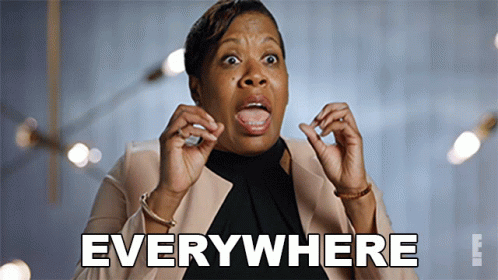Before you start reading, take a few minutes to think: how would YOU answer this question? Most people have seen news stories about the plastic in our oceans that is harming animals. But are there any other issues? Maybe you see the problem not with plastic itself, but with the fact that people aren’t disposing of it properly or recycling enough.
To help us think it through, let’s look at the material itself.
WHAT EXACTLY IS PLASTIC?
Plastic is a mixture of fossil fuels and chemicals. First, refined crude oil or gas is put under high heat and pressure to “crack” the hydrocarbon molecules into simpler versions called monomers (mono = single). Examples of fossil fuel monomers are styrene or ethylene. These are then fused together to form polymers (poly = many), with names like polystyrene or polyethylene.
These polymers are finally melted together with various chemicals to form plastics. Each plastic product has a special recipe of polymers and chemicals that makes it more or less shiny, transparent, hard, flexible, heat-resistant etc. Plastic can also be mixed with other materials like foil or paper. Scientists have identified more than 16,000 different chemicals in plastics that we use today, and very few are known to be safe for humans. Companies currently don’t need to tell anyone what’s inside the plastic they make.

You can find out more about this process and how plastic was invented in the reading and watch lists below.
WHAT IS PLASTIC USED FOR?
Probably the easier question to answer is what isn’t plastic used for?! In a few decades, it has taken over the world. Aside from obvious uses like soft drinks bottles or straws, plastic can be found in everything from clothes to paint and even in products we use on our face and body. Some plastic things can be used for a long time, like car doors. But most plastic things we use only once, often for just a few seconds, like a coffee stirrer.

WHAT HAPPENS TO PLASTIC AFTER WE’RE FINISHED USING IT?
Because it’s manmade, plastic doesn’t act like other materials when it’s thrown away. The polymers are tightly fused together and mixed in with a lot of different chemicals so it can’t break down naturally. Recycling it is tricky – as we’ll see later on. Burning it releases those chemicals into the atmosphere, along with all the regular greenhouse gases from the fossil fuel it’s made from.
Basically, every piece of plastic ever made still exists on Earth in some form. Your toothbrush will easily outlive your great-great-great-great-great-great-great-great-great-great-great-great-great-great-great-great-great-great-great-great-grandchildren 😀

In summary, we might say the problem with plastic is that there is way too much of it being produced.
That’s an issue because of what it’s made from – fossil fuel and toxic chemicals – and how it acts.
Here are the twins with more:
In the video, we hear there are three main impacts of plastic – and all of them affect you in some way.
- Plastic destroys ecosystems
- Plastic affects your health
- Plastic accelerates climate change
We’ll be looking at these in depth in the next parts of the series. Until then, you’ll find a lot of great info in the reading / watch lists below. Take your time and check out whatever appeals to you. You can also apply your new knowledge in an activity, or test it out in the quiz. Don’t forget to let us know your thoughts on this topic below.
➤ The Age of Plastic
➤ The Plastic Problem
➤ Everything you need to know about plastic
❗ TRY THIS
Look around you, where do you see plastic? It’s not always obvious! But once you start looking, you might start to see it everywhere… You’re probably wearing it, drinking or eating from it, working, playing and even washing with it. Can you reach 100+ things in one day?
What things do you / your family buy in plastic? Or that contain plastic?
How many of those things are single-use?
Start to keep a list if you like. It might come in handy later.
Feel confident with your new knowledge?
❓ OVER TO YOU
Plastic is everywhere in our lives but it’s causing a lot of problems. What do you think we can do about this?
💡 Think about what plastic is used for. Are all of these things necessary?
Let us know in the comments below!
Note: comments are moderated so they won’t appear right away



1 comment
Join the conversationElias - 23/12/2024
WOW THAT IS SO CRAZY